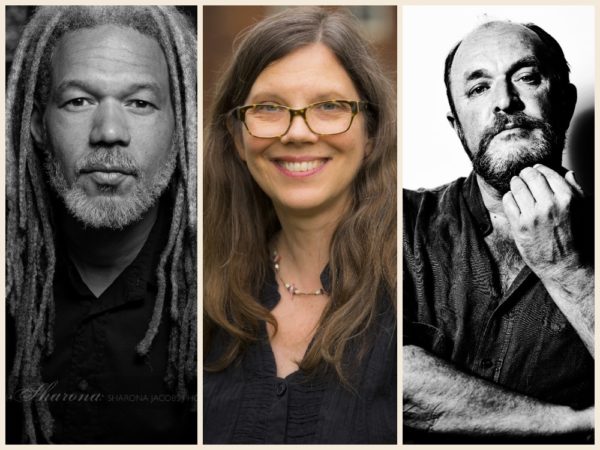November 27th 2020 in Cundill history hub
Seeing the present through history's eyes

The three 2020 Cundill History Prize finalists shared their take on history's contemporary significance with prize coordinator Mackenzie Bleho, who here distils their answers
As the 2020 Cundill History Prize jury announced this year’s longlist, then shortlist, then finalists, a fortuitous theme emerged and recurred. Tackling lesser-known histories or bringing previously left-out perspectives to the table, these books resonated with the issues of our time. Each in its own way has embodied the contemporary consequence expected of a Cundill book.
With three writers remaining in the running for the grand prize, we caught up with Vincent Brown, William Dalrymple, and Camilla Townsend on how they themselves view the nexus between history, today, and beyond.
Perhaps what the general reader most expects from history vis-à-vis today is an ability to explain how we got here. Vincent Brown illustrated that potential for us himself. Selecting as example the “recent spate of police killings in the United States”, he distinguished between recent “court decisions decreasing the accountability of law enforcement” and “the racial stigma attached to the descendants of the enslaved”. Both produce this injustice. But a sound grounding in history illuminates “the difference between the proximate causes of events [the decisions]… and their underlying causes [the stigma]”. This subtlety equips us to combat an issue at its roots, and more effectively.
History can also help us understand where even “here” is. In these days of increased polarisation and ideological intransigence, might a better study of the past offer a way out? Camilla Townsend certainly seemed to think so. For, just as the best history brings something interpretatively new to the table, it can also train us to take a second look at anything. In her words: “If we learn that we have been wrong—or partly wrong—about the past, we may find that we need to reinterpret the present.” History shows that most everything is fair game to be rethought, including “modern attitudes as well”.
And then, there is that question we so love to put to our intellectuals: where are we going? Most prove too wise to take that bait without nuancing. But it is true that history has long been understood as useful to future generations. William Dalrymple makes this case while exploring the East India Company. An ancestor of today’s corporatism, the Company offers a cautionary tale. Indeed, Dalrymple characterised it as “history’s most ominous warning about the potential for the abuse of corporate power”. By hearing these warnings, with luck, we can change course. Which makes this “potentially admonitory purpose” absolutely “vital”, in his words.
All told, from one theme emerges another: history matters today because today matters to us. As does tomorrow. So it’s not for nothing that, while considering history’s contemporary function, two of our authors turned to metaphor—Dalrymple affirming that “[w]ithout it we are mapless travellers”, Brown quoting W.E.B. Du Bois’ view of it as “a measuring rod and a guidepost for the future”. History is a tool in our kit, as we make our way through time. And what’s at stake, in Townsend’s words, is nothing less than “what we think we know”.
In this sense, to close with a metaphor of our own, the three 2020 Cundill History Prize finalists prove to be opticians conscious of the importance of their craft. How lucky we are, in this most unprecedented of years, to gaze all around—and with their help—through lenses corrective and telescopic.
The winner of the 2020 Cundill History Prize will be announced in a virtual ceremony on Thursday, December 3rd. All are welcome. Register today.
Want to hear more from Vincent, William, and Camilla? You can read additional quotes on our social media!
Share this
Archive
2023: September (2) October (2)2022: April (1) August (3) December (2)
2021: August (1) September (1) December (3)
2020: August (1) October (2) November (2)
2019: September (3) November (2)
Recent Hub Contributions
Partnership Focus: Literary Review of Canada
Partnership Focus: Bookshop.org
Partnership Focus: HistoryExtra
15th Anniversary Special: Alan Taylor
15th Anniversary Special: Mark Gilbert
15th Anniversary Special: Peter Frankopan
15th Anniversary Special: Camilla Townsend